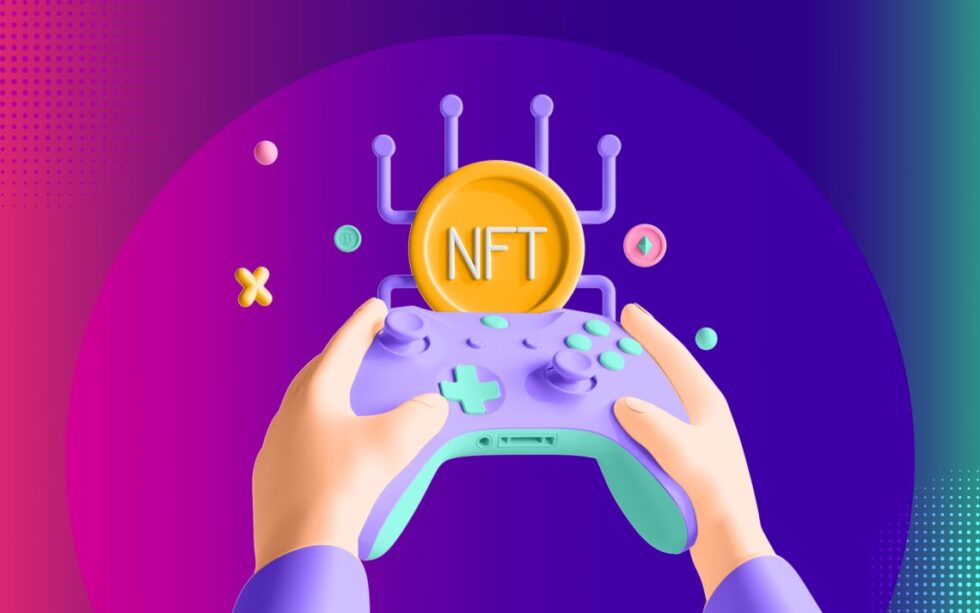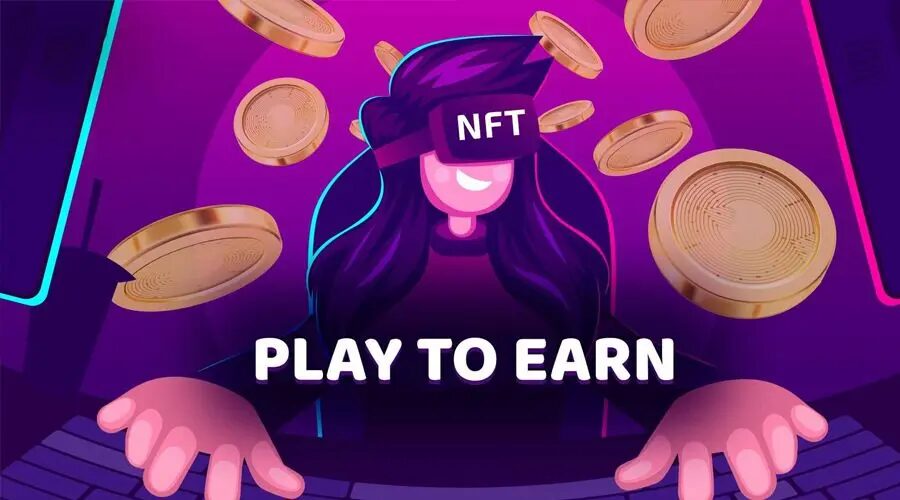How is cryptocurrency reshaping gaming: GameFi and Play-to-Earn in Germany in 2025

Cryptocurrency has entered the mainstream of the gaming industry, and in 2025 concepts like GameFi and Play-to-Earn are becoming a visible part of digital culture in Germany. For gamers, this means not only entertainment but also real opportunities to earn money while playing. A growing number of German and international projects, exchanges, and investors are pushing this trend forward. Berlin, Hamburg, Munich, and Frankfurt have already become hubs for blockchain gaming startups and communities, highlighting the importance of this sector for both the tech and entertainment industries, as reported by G.business.
What is GameFi and why is it gaining traction in Germany
GameFi, a combination of “Game” and “Finance,” refers to blockchain-based games where players earn digital assets such as tokens and NFTs that can be traded for real money. In Germany, this trend is spreading quickly among young professionals and students, who see gaming as a secondary source of income. The rise of GameFi has been boosted by the strong German fintech ecosystem, government support for digitalization, and an expanding blockchain developer scene. Major German universities are also offering blockchain courses, fueling a new generation of developers who combine gaming expertise with financial innovation. The decentralized nature of blockchain gives players a sense of ownership, transparency, and security, which has increased trust in these platforms.
Key features of GameFi in Germany:
- Integration with popular cryptocurrencies and NFT assets.
- Real money conversion of in-game rewards.
- Large developer communities in Berlin and Munich.
- High transparency due to blockchain technology.
- Access to EU-level investors and funds.
How does the Play-to-Earn model work
Play-to-Earn (P2E) is a gaming model where players receive rewards in the form of tokens or NFTs for their in-game activities. In Germany, the popularity of P2E has grown due to the strong esports community and the country’s long-standing tradition of gaming culture. Well-known international titles like Axie Infinity or Sandbox are popular, but 2025 also sees new German initiatives — especially in educational gaming and green-energy-inspired projects. For German players, the main appeal is the ability to turn free time into additional income, though the volatility of cryptocurrencies makes it a risky option.
Typical rewards in P2E games:
- ERC-20 tokens that can be sold on exchanges.
- NFT characters, weapons, or land plots.
- Reputation points converted into bonuses.
- Accounts with unique assets that can be resold.
Germany’s GameFi market in 2025
Germany has become one of the leaders of the GameFi movement in Europe, thanks to its strong tech ecosystem. According to the German Blockchain Association, more than 70 blockchain gaming projects were active by mid-2025, a 40% increase compared to the previous year. Most are concentrated in major tech cities like Berlin, Munich, Frankfurt, and Hamburg, supported by local incubators and EU innovation funds. Events such as Berlin Blockchain Week and Gamescom Cologne are increasingly focusing on blockchain and GameFi. German exchanges like Bitpanda and Nuri also offer easy access to game-related tokens, making adoption faster.
| City | Number of GameFi projects | Events in 2025 | Key startups |
|---|---|---|---|
| Berlin | 25 | Berlin Blockchain Week | ChainPlay, NFT Arena |
| Munich | 15 | Games Innovation Forum | GameVerse Labs |
| Frankfurt | 12 | Crypto Finance Summit | Play-to-Earn Finance |
| Hamburg | 10 | Digital Gaming Expo | MetaWorld Studio |
Benefits and risks for German gamers
For gamers in Germany, GameFi and P2E offer both opportunities and risks. The benefit lies in earning real income while playing, joining international gaming communities, and accessing cutting-edge technology. Many German students are already reporting monthly side earnings between €200 and €800 from P2E games. However, the risks remain significant: token volatility, unregulated projects, and the possibility of scams. Taxation is another challenge — in Germany, crypto gains are taxable, and unclear regulations for P2E income create legal uncertainties. This means players must keep records of their transactions and be prepared for potential tax declarations.
Pros and cons of GameFi for German players:
- Pros: real income potential, transparency, international exposure, growing ecosystem.
- Cons: volatility of tokens, unclear tax rules, risk of scams, high entry costs in some games.
Step-by-step: how to start GameFi in Germany
For beginners in Germany, getting started with GameFi requires preparation. While many platforms are easy to use, the entry barrier is higher than in traditional gaming. German exchanges and wallets simplify the process, but security and compliance are crucial. Players must treat GameFi both as entertainment and as a financial activity.

Steps for beginners:
- Choose a crypto wallet – MetaMask, Trust Wallet, or German apps supporting ERC-20 and NFTs.
- Fund the wallet – Buy ETH, BNB, or MATIC via German exchanges like Nuri or Bitpanda.
- Connect wallet to the game – Necessary for storing NFTs and tokens.
- Select a game – Global titles (Axie Infinity, Sandbox) or German startups (ChainPlay, PlayChain).
- Buy starting NFTs – Required for many P2E games.
- Play and earn – Join missions, quests, and tournaments.
- Withdraw rewards – Sell tokens via German exchanges, convert to euros.
- Join German GameFi communities – Telegram, Discord, and local meetups in Berlin and Munich.
Entry costs and potential earnings in Germany
| Game / Project | Minimum entry cost | Potential monthly rewards | Notes |
|---|---|---|---|
| Axie Infinity | €120–150 (3 NFTs) | €60–150 | Stable, popular |
| Sandbox | €90–120 (land/NFT) | €50–100 | Metaverse focus |
| Illuvium | €200–300 | €120–250 | High graphics requirements |
| German PlayChain | €50–70 | €30–70 | Local project, easy start |
Common mistakes German players make and how to avoid them
Frequent mistakes:
- Using unofficial websites and losing funds to scams.
- Forgetting to secure private keys.
- Investing all funds in one game.
- Ignoring German tax regulations.
- Overestimating potential profits.
- Not checking project legitimacy.
- Delaying withdrawals during token crashes.
How to avoid them:
- Only use official websites and exchanges.
- Enable 2FA and backup your wallet.
- Diversify across several games.
- Keep tax records for all transactions.
- Start small and scale gradually.
- Join local German blockchain forums.
- Withdraw profits regularly.
Future of GameFi and P2E in Germany
The outlook for GameFi in Germany is highly optimistic. Analysts predict the German blockchain gaming market could grow by 250% by 2030, making it one of Europe’s leaders. Key drivers will be the strong German fintech sector, university research programs, and EU digital funding. However, success will depend on establishing clear taxation rules and protecting players from fraud. If regulators, developers, and gamers cooperate, Germany could become a European hub for blockchain-based gaming.
Predictions for the future:
- Growth of German-led GameFi startups.
- EU-level regulation on P2E taxation.
- Expansion of educational blockchain gaming.
- Partnerships between German universities and gaming firms.
- Rise of mobile-based Play-to-Earn platforms.
GameFi and Play-to-Earn in Germany in 2025 are no longer niche experiments but active segments of the digital economy. For some, they provide real side income and a sense of ownership in virtual worlds. For others, they represent risky speculation in volatile markets. Germany’s strong IT infrastructure, thriving startup scene, and regulatory focus make it one of the most promising countries for blockchain gaming. The next years will determine whether this becomes a sustainable industry or simply a passing digital trend.
Latest events in politics and global economy at Cryptonews – practical tips on how to act and invest. Read: What opportunities do crypto and music create: how artists earn through Web3 and NFT